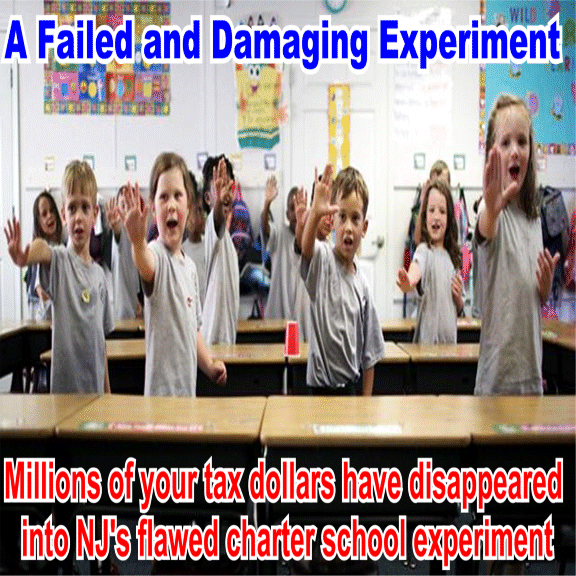Millions of your tax dollars have disappeared into NJ's flawed charter school experiment
More than two decades into the state’s experiment to create charter schools, which were conceived to provide residents with choices and to spur innovation, serious flaws in the design of the system have led to the diversion of millions of dollars in taxpayer money to private companies that control real estate.
Two of the state's largest charter school operators, KIPP New Jersey and Uncommon Schools, have been permitted by the state to monopolize hundreds of millions of dollars in federal aid for public school construction, helping them to create networks of privately owned buildings.
And investors positioned themselves to make millions from taxpayers, including real estate entrepreneurs, developers and a range of lenders.
The current situation was born, in some ways, out of necessity.
No system was put in place to help charter operators find and finance school buildings to house and educate tens of thousands of students. In fact, an author of the state's charter school law, which Gov. Christine Todd Whitman signed in 1996, says facilities weren’t addressed to avoid controversy with the state teachers' union and others over the creation of the independent public schools.
A lack of clarity and vagaries in the charter school law ― and what some education experts say is bad policy or no policy at all ― has created a confusing and tangled landscape where transactions are often secret, or buried so deeply in documents that the public has virtually no way of scrutinizing how their tax dollars are being spent.
Private groups that are created to support charter schools ― and own and finance their real estate ― sometimes share board members or officers and lend money to one another. These groups end up owning and controlling facilities leased by the schools, setting rents as they see fit.
“We’re putting a lot of public dollars into the acquisition of assets for private hands,” said Bruce Baker, a Rutgers University professor and a nationally recognized expert on education financing. "All of these crazy, funky, convoluted relationships and kind of specially crafted, third-party organizations are really all a function of just bad policy.”
“We left these organizations to come up with a way to gain access to properties and to retrofit and renovate urban facilities in expensive areas," he added. "And it costs a lot of money, so they had to get creative.”
What that means is that millions of your tax dollars are being siphoned off by private interests to pay for buildings ― often without your knowledge ― that you don't own.
NorthJersey.com and the USA TODAY NETWORK New Jersey reviewed tens of thousands of pages of documents, including lease, property and financing records, state-issued bond sales and audits involving a cross section of charter schools around the state. The findings raise troubling questions about waste, the use of public money, and accountability in a system that receives some $760 million annually from traditional public school districts and educates more than 50,000 students. Another 35,000 are on waiting lists. CONTINUE READING: NJ charter schools: Tax money is disappearing into a flawed experiment




